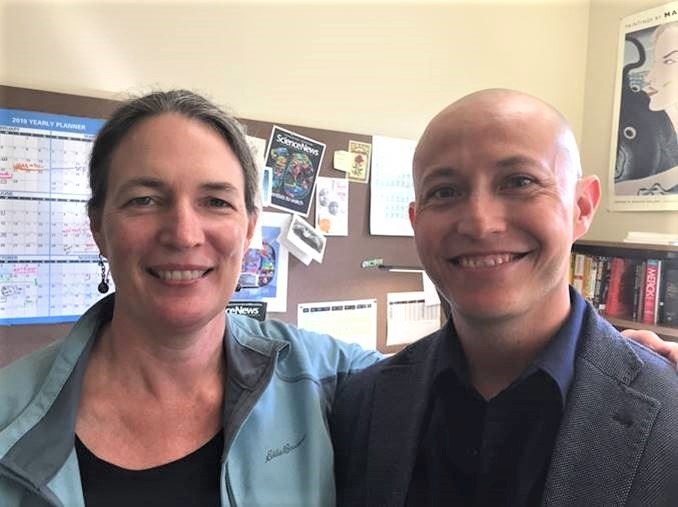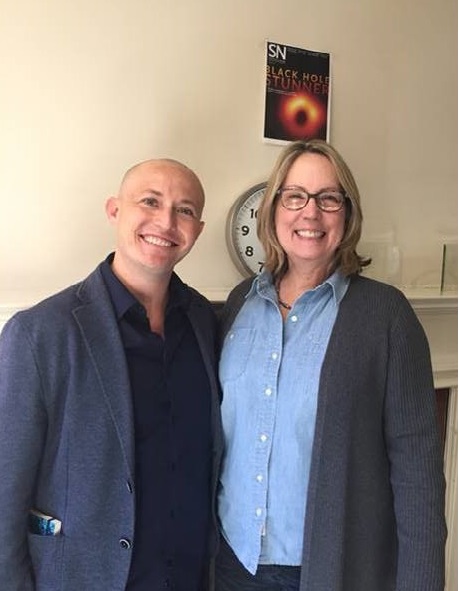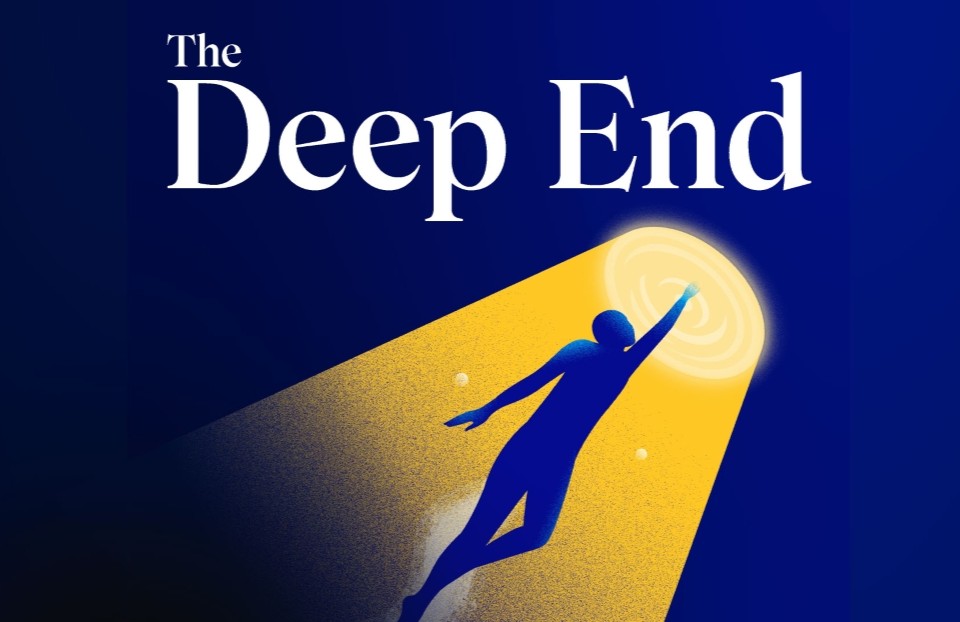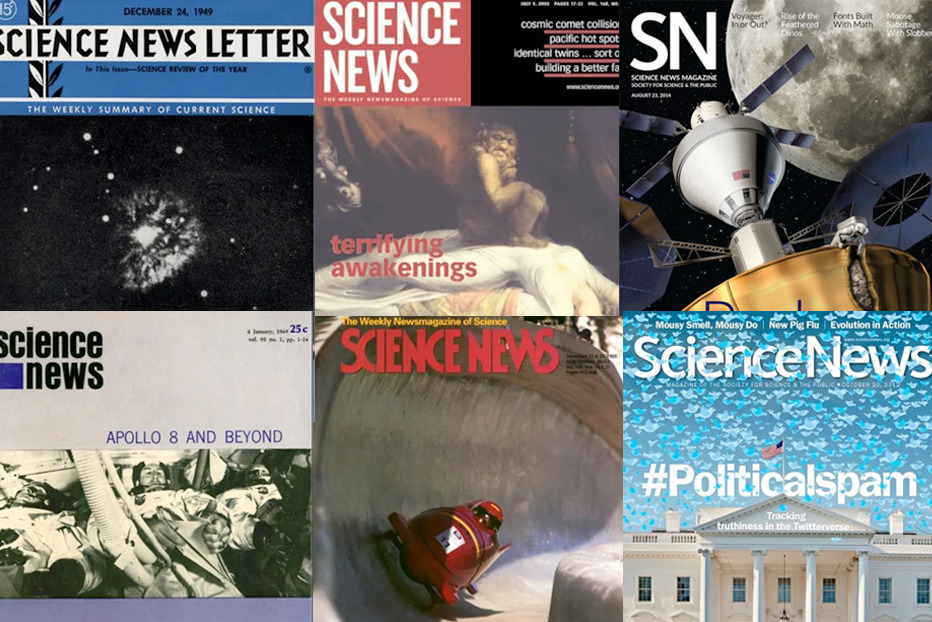Science News hosts Mexican journalist through international fellowship program

Meet Pablo Hernández-Mares, the first foreign journalist to be hosted by Science News through the International Center for Journalists. Called A Digital Path to Entrepreneurship and Innovation for Latin America, the U.S. State Department–supported exchange program brings Latin American journalists to the United States for a monthlong fellowship at a variety of media outlets.
When Science News was asked to host a fellow, “It sounded like a great opportunity for us to learn about science journalism practices in another part of the world and to share our expertise,” said Macon Morehouse, News Director at Science News. “We had the freedom to craft the fellowship in a way that we thought would suit both of us and Pablo, so we decided to give him access to all aspects of our organization.” While here, Pablo was exposed to editorial, marketing, nonprofit funding, web production and social media. On his last day with Science News, Pablo’s news story about the recovery of the South Atlantic’s humpback whale population was published, which proved popular with Science News readers.
We had a chance to follow up with Pablo. Read more about his fellowship experience below.
Please tell us about your fellowship at Science News. What did you do and what was the experience like?
I spent four weeks at Science News. From the beginning of the fellowship, I had the opportunity to participate in editorial meetings, where I heard pitches made by fellow reporters and editors, and took part in discussions about the progress made in various research fields. I was invited to propose stories to News Director, Macon Morehouse. During my first week, I looked for topics to work on. Finally, I wrote a short story about the recovery of humpback whales in the South Atlantic from near extinction. I held interviews with the researchers, who published a study about the topic, and other independent researchers who could provide commentary.
What was most surprising?
The great team. I really liked that directing and decision-making roles at Science News were occupied by women. I think it’s especially important for women in media, journalism and communications to specialize in science because women do not typically occupy these positions; there is a gender disparity in Mexico as well.
What was most informative?
Science News competes with the most important media in the United States and in the world—the stories have an impact on the scientific community and the general public. For me, it was like being in the “big leagues” of scientific journalism.
What was most challenging?
Language barriers are an important topic to address in international journalism. Since English is not my mother tongue, it was challenging to read and write at first, but it was part of the challenge I set for myself and one of the key objectives of ICFJ’s fellowship program.

How is science journalism different in Mexico compared with the United States?
Scientific journalism in Mexico is a bit more limited. Journalists get the latest discoveries and advances from press releases distributed by universities or scientific institutes and rarely use independent or original sources. I think Science News is 100 years ahead in science journalism compared to the work that is being done in Mexico.
What is one thing you learned during your fellowship that you’ve brought back and incorporated into your work in Mexico?
It was a very rich experience. I think about the possibility of proposing different topics to magazine publishers that may be interested in journalistic content that I can investigate from Mexico.
You began your career as a musical director, reporter and news anchor at Radio Universidad de Guadalajara 17 years ago. Can you tell us more about your educational background and career in science journalism? What inspired you to enter this field?
I have always loved music and when I started studying communication sciences, I joined a team of journalists at my university’s radio station, which allowed me delve into both. Music all day long at the radio station and journalism in the newsroom!
For a long time, I was also interested in the production of documentaries about environmental science and different subjects from astronomy to genetics. My work allowed me to talk with researchers to learn more. Science should be covered from a journalistic point of view, independently, with a variety of sources and critical skepticism.
What science writers do you admire and why?
I am currently reading Richard Dawkins. I really like his role as a popularizer of science especially in concepts such as skepticism, reason, independence and issues such as evolution.
The world faces so many scientific challenges today. What keeps you up at night?
I find the issue of genetic editing very interesting. It is generating spectacular advances, especially doctors that hope to bring important benefits to many people, especially in developing countries such as Mexico. Artificial intelligence and quantum computing are also fascinating to me.
You are a Professor of Digital Journalism at the University of Guadalajara. What do you enjoy most about your job? What are the biggest challenges?
At this time in Mexico, the most complicated thing in journalism is the issue of security. Currently there is a very high level of violence. Mexico is one of the most dangerous countries in the world to practice journalism. It is very difficult to maintain journalism schools when socially, journalism is not seen as a form of service, but instead as a form of publicity for companies or political propaganda for the government. It is very difficult for students to receive their parents’ support to study journalism at the moment in Mexico.
What’s next for you?
Right now, I am still working as a freelance reporter for the medical news agency Medscape.com and I hope to sustain my role as an independent scientific journalist in Guadalajara, the second largest city in Mexico.


